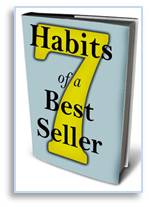In an article called “Getting to the Top,” The Wall Street Journal last week reported that the authors of some business books are using a company called ResultSource to pump up sales of their books so they hit the best seller list. That sounds like super-duper marketing except that, well, it isn’t marketing at all.
What ResultSource does is buy a lot of the books in advance. This spike in “sales,” puts it on the list, if only for a week, and this brings the book it to the attention of reviewers and writers of business articles. According to the company, this increased visibility can, “mean fame, and potentially lucrative consulting assignments.”
Well, sure, but they aren’t really sales, as the author is essentially buying his/her own books through the medium of ResultSource. That’s like a technology company hiring a third-party to buy their new product shortly after its launch so they can report strong sales.
Book sales, predictably, plunge the following week but that doesn’t matter as the goal is only to increase short-term visibility.
But wait? Do the publications that compile best-seller lists count such bulk pre-orders as sales? No, they don’t. @WSJ says that, somehow, ResultSource has gotten around such an annoying complication with a “secret sauce” for which they charge authors between $20,000 and $30,000—plus the cost of the books. That means an author can spend upwards of $70,000 to $80,000 for their 15 minutes of fame. Those folks are going to have to do a lot of speaking and consulting, not to mention follow-on book sales, to recoup that much of an investment.
Reading this article reminded me of a meeting I sat in years ago during which my boss instructed the fresh-faced, dewy-eyed, young people who worked for him to go on the company website and, pretending to be customers, write excellent reviews of the product. They charged right out to do as instructed while I left grateful that he hadn’t asked me. Because I would have refused to do something I considered simply unethical.
 Do ethics matter in business? Can you, in good conscience and with your head held high, call yourself the author of a New York Times best-seller if all you did was game the system? Can you brag about your business savvy in getting around the rules for book sales? Do you think about this as you cash your fat consulting and speaking engagement checks at the bank? Probably not.
Do ethics matter in business? Can you, in good conscience and with your head held high, call yourself the author of a New York Times best-seller if all you did was game the system? Can you brag about your business savvy in getting around the rules for book sales? Do you think about this as you cash your fat consulting and speaking engagement checks at the bank? Probably not.But how do you explain all those boxes of books in your garage?

